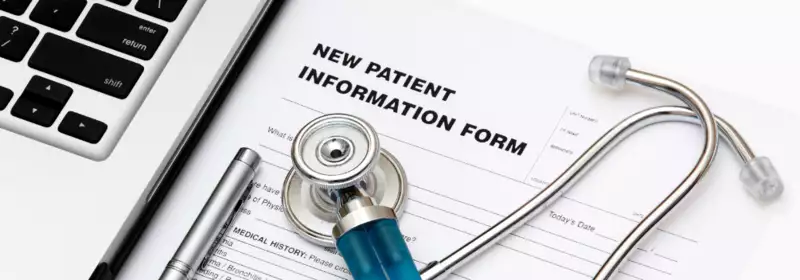Mental health workers are devoted to supporting individuals who are dealing with emotional and psychiatric issues and illnesses. Their roles vary depending on the needs of their patients and their duties are often close to those of nurses and medical assistants.
But their primary focus is contributing to the mental health and wellbeing of their patients. They aren’t graduate or doctoral level workers. However, their role in supporting individuals cope with their mental health illness is no less important.
Mental health workers are in most instances the frontline support for individuals with mental health illnesses. Staying by their side as they learn to manage their challenges and adapt to life after diagnosis. An adjustment that is difficult for many, nonetheless, mental health workers are there with unwavering support and reassurance.
As part of a larger multidisciplinary team, mental health workers help patients improve their overall functioning. Enabling them to live comfortably and continue with employment and life’s regular responsibilities.
Find out about why mental health support is important, what the role of a mental health worker entails and more.

The Need for Mental Health Support
Just like physical health, everyone has mental health. The state of which can change over time in response to various challenges and experiences. Or it can be permanently affected by trauma or if the individual develops an enduring mental illness or disorder.
Either way, mental health issues are common with 1 in 4 people experiencing some form of mental health issue each year. And the needs of each individual can vary depending on the type of challenges they face, their symptoms and severity.
This is why a broad range of support systems need to be in place to cater to different requirements. To provide the precise help that is needed, when it’s needed. So, people can get on with their lives and live as comfortably and independently as possible.
That’s why mental health workers are found in many sectors of healthcare services. As they can provide support to those with mild or short-term issues or those with more severe and enduring disorders.
What does a Mental Health Worker do?
As a mental health worker, you work directly with mental health patients. You’ll provide assistance and support in ways that have been established in their care plans. But ultimately, you’ll help them cope with their challenges and achieve their personal goals.
Roles vary depending on the environment you work in and whether patients have mild or severe symptoms. Your daily tasks could include:
- Assisting with regular responsibilities like housekeeping or daily activities like eating, hygiene and dressing.
- Observing psychosocial interactions and reporting on any changes or abnormal behaviour.
- Monitoring your patient’s nutrition by recording all their calorie intake and output.
- Performing clinical activities based on their individual patient care treatment plans.
- Participating in activities with patients to foster an environment conducive to therapies and healing.
- Supervising patients to ensure their safety and well-being.
- Providing crisis intervention.
- Administering medications and other treatments under the instruction of doctors or nurses.
- Restraining patients who become physically violent or aggressive.
- Documenting your patient's vitals, height and weight measurements and other data to ensure their records are up to date.
- Intaking new patients, working with them and a multidisciplinary team to identify their issues.
- Having some input in the development of treatment plans and strategies to best meet their identified needs.

Where you can work
You have the choice to work in a variety of settings. Should you want to help out in the community, you can visit patients in their own homes. Other opportunities are generally aligned with more severe and enduring disorders. In these you can work in hospitals, mental health clinics, psychiatric assessment centres or psychiatric emergency centres.
More commonly, there are jobs available in various geriatric facilities where you care for elderly patients in day-care type settings. However, if their mental health issues become too challenging, they may be moved to a more secure facility. You could also find work with children in special classes or camps for those with mental health issues.
What skills do you need to be a Mental Health Worker?
Overall, a mental health worker must be compassionate and patient. You need to be strong-willed and able to think on your feet to avoid crisis or upset to patients. Working well as part of a team is also essential to delivering effective patient care, as is paying attention to their changing needs.
Employers will want to see you have the right attitude to work in mental health. So, being non-judgemental and empathetic is important, as well as actively wanting to encourage patients to achieve their goals.
Qualification wise, there aren’t any set entry requirements. But what employers will ask for will likely depend on where you want to work. Courses in mental health, psychology, sociology, or other human service areas are highly advantageous. But if you aim to work with severe mental health illnesses, you’ll likely also need training in crisis prevention and intervention. As well as demonstrate your ability to restrain violent patients.
Experience is also highly valued, and, in some cases, this can go in place of the need for related qualifications. Some employers also offer to support additional training as you work.

How could my career progress?
Upon entry to this role, your duties may be capped depending on your qualifications and experience. As your education and experience grows, so do the range of duties and responsibilities you can complete.
More experienced mental health workers can assist mental health providers in planning and implementing treatment strategies. You can also become responsible for intake procedures such as interviewing and admitting patients. As a senior mental health worker, you may also take responsibility for overseeing therapeutic activities with patients.
Starting your Career
If you’re reading this as an aspiring mental health worker, there are online courses that can help you secure employment.
You can taker a wider approach to understanding mental health, or focus on the needs of children and young people. Or take courses like understanding the principles of the mental health care worker and mental health and social care.
These will all teach you how to recognise different mental health conditions, their triggers and how to correctly support them. What’s more, they can be studied online at home, around your existing schedule.
learndirect is the leading UK distance learning provider, with many online courses to help you work in mental health.
Find out more about the many courses you can take to prepare for becoming a mental health worker by clicking below to download our free brochure.



















